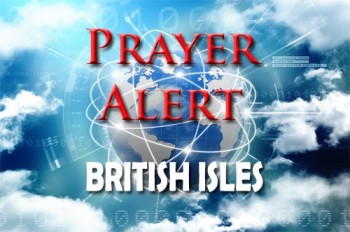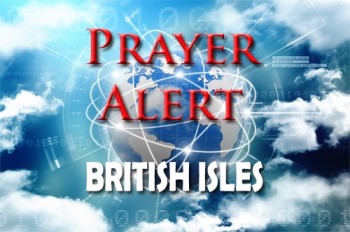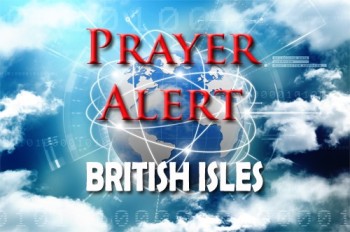Trussell Trust: autumn budget must deliver urgent action on hunger
The Trussell Trust is calling for urgent government action in the autumn budget to tackle soaring hunger across the UK. Its landmark study, Hunger in the UK, reveals that 14.1 million people, including 3.8 million children, faced hunger in 2024 due to insufficient income. This represents one in six households, and is a rise from 11.6 million in 2022. Foodbank reliance is growing, but many go without help, believing others are in greater need. The crisis hits children under five and disabled people hardest, with nearly three quarters of foodbank users living with disabilities. Alarmingly, 30% of those referred are from working households, showing that employment is no safeguard against hardship. Universal Credit is failing to protect families: over half of recipients experienced hunger last year. With households left with only £104 a week after housing, Trussell says poverty is about income, not food supply. They urge scrapping the two-child limit, reforming Universal Credit, and uprating Local Housing Allowance to prevent hunger from becoming routine.
Sinn Féin: PSNI ‘must do more’ to tackle racist mobs
Sinn Féin has called on the PSNI to do more to tackle racist mob violence after migrant workers were attacked at Connswater Retail Park, east Belfast. Video footage showed two cars surrounded and damaged by a group of men, in what police are treating as racially motivated hate crimes. Although PSNI officers were present, they did not intervene, saying they were conducting an 'evidence-gathering operation’. The response has sparked outrage. Green Party councillor Brian Smyth warned that rising vigilante patrols targeting migrants risk someone being killed, describing the Connswater incident as an attempted 'racial lynching.' He said migrants are now 'living in terror' in their homes. Sinn Féin condemned the 'deplorable attack' and urged immediate arrests, insisting vigilante violence 'has no place in society’. The police have pledged to increase patrols to reassure the community and challenge racist groups. Chief Inspector Louise Dunne said that those involved lack any 'legal or moral authority' and are spreading fear rather than protecting communities.
‘Non-religious’ Brits believe in God or afterlife
A new study reveals surprising levels of spiritual belief among Britons who identify as 'non-religious’. While 46% of the population now describe themselves this way, a quarter of this group still believe in God or a higher power. Broadened to include belief in 'something beyond the natural world,' the figure rises to 45%. One third (33%) of non-religious respondents also believe in some form of afterlife. Interestingly, some who identify with a religion see it only as cultural, with 15% denying belief in God. The findings align with this year’s Bible Society research showing a 'quiet revival’ and Youth for Christ data indicating over half of young people are open to spirituality. Dr Rob Barward-Symmons of the Bible Society suggests rising interest reflects a backlash against loneliness in the digital age, with young people particularly seeking meaning and healing. Analysts see opportunity for Christians to share the gospel with a generation searching for truth and hope.
France: Macron’s options after prime minister ousted
France faces a huge political crisis after lawmakers voted to oust prime minister François Bayrou’s minority government over his controversial austerity measures. His plan to cut €43.8 billion from the budget, including the elimination of public holidays, proved too bitter for lawmakers to swallow, leading to his removal by a wide margin. Emmanuel Macron must now name a fifth prime minister in less than two years, but his options are fraught. Any new premier will confront the same fractured parliament, where ideological divides between socialists and conservatives leave little space for compromise. A snap election would most likely lead to another hung parliament, while a technical caretaker government risks political paralysis. Though Macron’s resignation as president is highly improbable, his authority appears diminished. Financial markets are watching nervously as doubts grow over France’s ability to curb its soaring debt and deficits. Latest update: a new prime minister has been sworn in, but a grassroots group ‘Let’s block everything’ organised widespread protests, some violent, on 10 September. See
Poland: reactions to Russia’s drone attacks
Russia’s unprecedented drone strikes on Poland on 9 September are framed as both a test and a warning to Europe and NATO. Moscow, adept at ‘salami-slicing’ escalation, is probing allied resolve with incremental provocations - from bombings in Kyiv to GPS jamming: each crossing a new line while eliciting mostly rhetoric. Similar tactics enabled the 2014 seizure of Crimea, and hitting Polish territory is a larger slice meant to measure the alliance’s willingness to honour Article 5. A direct military response is deemed unlikely, yet inaction risks projecting weakness and inviting the next escalation. Sanctions talk will grow, but prior rounds neither deterred invasion nor reversed it; energy sanctions that might bite remain politically constrained. The strikes also serve as a warning against deeper Western involvement in Ukraine: Russia’s deniable, ambiguous tactics could complicate any future allied deployment after a ceasefire. The core question: can NATO deter without stumbling into a wider war?
Qatar: Israeli airstrike on Hamas leaders
The dramatic airstrike by Israel on Hamas leaders in Qatar on 9 October marks a new twist in a war already destabilising the wider Middle East. Qatar, long considered Hamas’ political base and a central mediator in ceasefire negotiations, condemned the attack as a flagrant breach of international law, while regional powers including the UAE and Saudi Arabia denounced it as an assault on sovereignty. The strike targeted Khalil al-Hayya, Hamas’ exiled Gaza chief and top negotiator, but reports indicate he and others survived. Coming just a day after Hamas’ armed wing killed six people in Jerusalem, the move risks collapsing fragile ceasefire talks. In Gaza City, Israeli evacuation orders have spread panic among civilians, many already displaced and trapped in worsening conditions. This year Israel has struck Hezbollah in Lebanon, Houthis in Yemen, and Iranian-linked targets in Syria and Iran, heightening fears of a regional war.
Nepal: violent protests against corruption and ban on social media
Nepal has been rocked by its most intense unrest in decades, with corruption and nepotism at the heart of nationwide protests. The turmoil escalated dramatically after the government’s controversial ban on social media platforms triggered widespread anger, amplified by resentment over politicians’ wealth and privileges. Though Gen Z activists initially led peaceful demonstrations, they turned violent, leaving at least 29 people dead and parliament, government buildings, and private homes torched. The protesters insist that infiltrators hijacked their movement, a claim supported by the army. While regretting the violence, some are cautiously optimistic that the movement might spark reforms. The army has deployed across Kathmandu, enforcing curfews, manning checkpoints, and inviting protest leaders to talks, while some young people began cleaning debris to show their hope for change. Whether the movement will lead to accountability and new leadership, or simply further instability, remains to be seen.
Philippines: Marcos an unlikely anti-corruption crusader
The Philippines once again finds itself grappling with the enduring scourge of corruption, an issue that has haunted the last three presidents: Ferdinand Marcos Sr, Benigno ‘Noynoy’ Aquino III, and now Ferdinand Marcos Jr. He is now trying to assume the mantle of anti-corruption reform, despite his own family name being historically associated with cronyism and ill-gotten wealth. Unlike Aquino, who launched his integrity drive at the height of his popularity, Marcos Jr faces diminishing political capital, factional rifts within congress, and a resurgent Duterte camp weaponising public anger. The stakes are high: scandals such as the multibillion-peso flood control controversy threaten to erode governance credibility at a time when systemic accountability is urgently needed. The president must move beyond rhetoric, pursuing transparency and reform even within his own circles. Without decisive action, the Philippines risks sliding into deeper political instability, echoing past failures to tackle entrenched corruption and injustice.
Uganda: ICC opens hearing against rebel leader
The International Criminal Court has opened its first-ever in absentia hearing against fugitive Ugandan rebel leader Joseph Kony, accused of 39 counts of war crimes and crimes against humanity. As head of the Lord’s Resistance Army, he terrorised northern Uganda for decades before his forces expanded attacks into Congo, the Central African Republic, and South Sudan. The LRA became infamous for abducting children, mutilating civilians, and enslaving women. Survivors and advocates in Uganda have welcomed the proceedings, even though Kony remains at large. Some stress the trial’s importance for victims who lost lives, limbs, and livelihoods; others, though frustrated at the delay, acknowledge the symbolic value for healing and justice. The court-appointed counsel for Kony, however, argued that his fair trial rights are being violated. Though justice remains incomplete without his capture, the hearing underscores the ICC’s willingness to pursue accountability in complex cases.
Argentina: financial woes after Milei’s party loses badly in local elections
Argentina’s political and financial turbulence deepened after Javier Milei’s party suffered a heavy defeat to the Peronist opposition in key local elections. The peso tumbled to a historic low, sliding nearly 5 percent against the US dollar, while stocks and international bonds plunged sharply, sparking concerns over Argentina’s economic stability. Milei’s reform agenda, once hailed as a potential turning point, now faces major obstacles as midterm elections loom on 26 October. Markets fear the government may burn through reserves to defend the peso, undermining its IMF-backed programme and raising the risk of default. The Peronists’ wider-than-expected 13-point victory in Buenos Aires province highlighted Milei’s growing political challenges. These are compounded by corruption allegations involving his sister. Investor confidence, already shaken, has deteriorated further, with bonds and equities suffering their steepest losses since Argentina’s 2020 restructuring.










